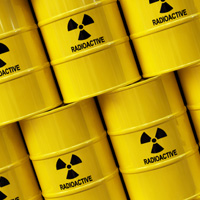Valerie Chang, Managing Director, Programs, and Nuclear Challenges Senior Program Officers Theo Kalionzes and Angela Schlater reflect on conversations and creativity that have emerged as MacArthur closes out the Nuclear Challenges program.
2021 was a bittersweet year for the Nuclear Challenges program. We grappled with hard decisions and the need to deliver difficult news to our grantees and partners, while also eagerly looking ahead to new ways of supporting the field in our final years.
Following a lengthy review of our strategy and the current landscape, we made the hard decision to bring the Nuclear Challenges Big Bet to a close and to end our nuclear grantmaking in 2023. We did not see a line of sight to achieving our strategy’s ambitious goals within the Big Bet’s timeframe. Recognizing the depth of the Foundation’s engagement in the field of international peace and security and nuclear disarmament over the years, and the ongoing state of nuclear relations in the world, it was not a decision taken lightly. Communicating this news to long-time colleagues, peers, partners, and friends was extraordinarily difficult.
Since we made this announcement in February, we have had a lot of conversations—many of them deeply thoughtful, provocative, emotional, and challenging—with grantees, peer funders, and potential new donors. We worked to the best of our ability and judgment to provide transitional funding for work associated with our Big Bet as we exit, while also funding new work as part of our capstone project.
Through four pillars of the capstone project—Cultivate, Innovate, Lead, and Preserve—we seek to build upon the strength and depth of the nuclear field while pressing in new directions. We will:
- Cultivate diversity to empower and lift up new and underrepresented voices in the nuclear talent pipeline;
- Innovate by establishing a research network to challenge nuclear deterrence theory;
- Lead at the nexus of nuclear and climate risks, with a focus on mitigating the security implications of nuclear power’s expansion as a climate solution; and
- Preserve support for a limited number of key organizations in the field and sustain critical nuclear dialogues.
With less focus on discrete policy outcomes and more emphasis on helping to advance the field in terms of representation, innovation, and modernization, we have changed our orientation in this final phase.
Even as our decision to exit causes disruption, we have been deeply inspired by the creativity and innovation that grantees continue to bring to the work. One organization successfully leveraged our multi-year general operating support award into matching funds from an individual donor. Another organization proposes to use a final award to establish an endowment fund that will support a nuclear policy fellowship in perpetuity. A research network to reexamine deterrence theory anticipates building off work that has come before. And its leaders hope to contribute to a reconceptualization of security which recognizes nuclear weapons do not keep us safe from the most pressing challenges we face, such as biological pandemics and climate change. Others are deepening their commitments to diversity, new perspectives, and new modes of working.
By the middle of 2022, we will have committed all of the capstone project’s funds. At that point, we will turn our efforts to convening, learning, communicating, and sharing the results of the work we have funded with our remarkable grantees. After this challenging year, we look forward to this next stage of work.
Nuclear Challenges grantmaking ›
Nuclear Challenges strategy ›
Other Director's Reflections ›






